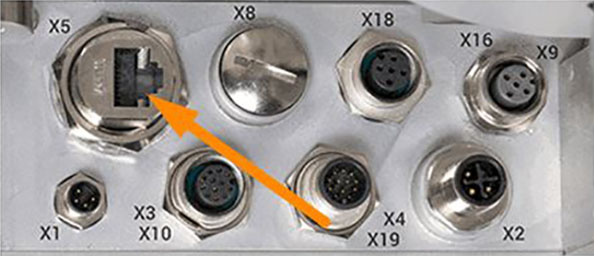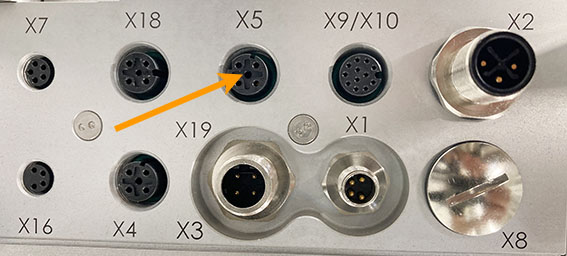Web interface
The web interface is a new function developed for the HERMA 500. It is available in the HERMA 500 as standard.
Prerequisites
To use the web interface, a connection via the Ethernet TCP/IP interface is required.

V1 (until end of 2021)

V2 (Facelift) as of 2022
The connection is made from an external device such as a notebook on which a web browser is installed. This web browser is the so-called client. The connection is optimized for the use of the Google Chrome browser.
Default settings
In the default setting, the IP address of the labeler is
192.168.3.11, with standard port 5555
To connect, enter the address: 192.168.3.11 in the address bar of your browser.
Note: If you can't connect, clear your browser's cache.
If required, you can assign your own IP address and port.
Basically, to open a web frontend, the display device (PC, laptop, industrial controller ...) must be in the same IP address range. With the default IP this would be, for example, 192.168.3.XXX (where XXX is a number between 0 and 255).
Physical connection
The Ethernet cable to be used requires an RJ45 connector on the applicator side. The connection can also be established via switches, where applicable.
Alternatively, the two devices can be connected via an additional router that is connected to the HERMA 500 and enables WLAN access to the HERMA 500.
An internet connection is not required!
Direct Ethernet connection to end device, where applicable also via switches
Ethernet port on router for WLAN connection with end device
Web server
You use this connection to access the integrated web server in the HERMA 500. This web server allows remote access, for example to enable service functions such as performing a device backup, or to connect external HMIs, tablets or notebooks to visualize the user interface and operate the applicator
Remote access to customer applicator
If the customer's applicator is connected to a browser via the web server, a connection between HERMA and the customer's applicator can be established using an Internet connection and the Teamviewer program. In this way, the customer's applicator can be controlled by HERMA customer service for support purposes.
TeamViewer is responsible for the security of the data transmission.